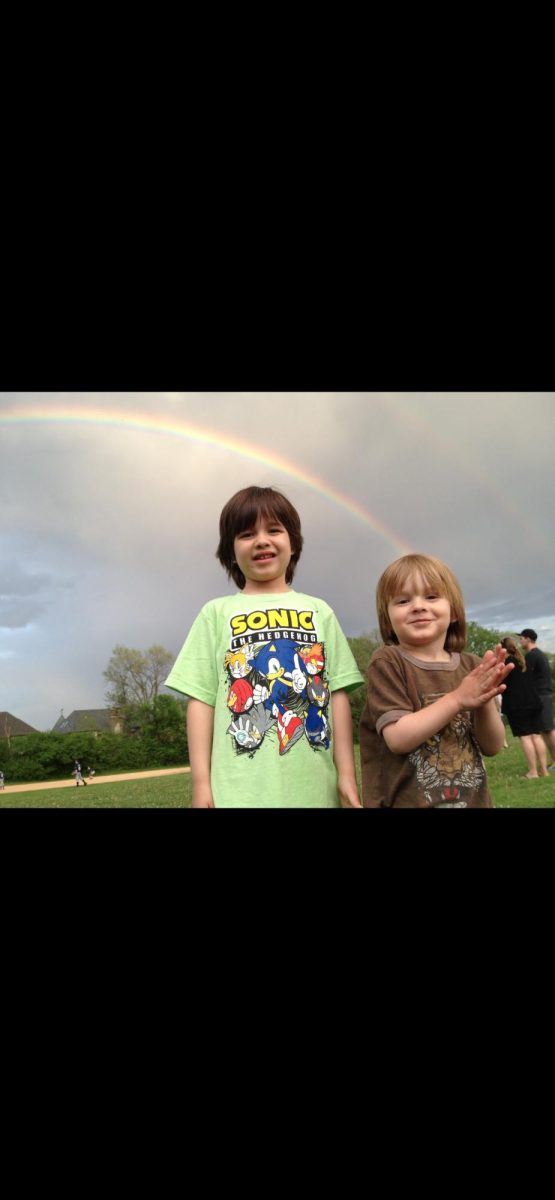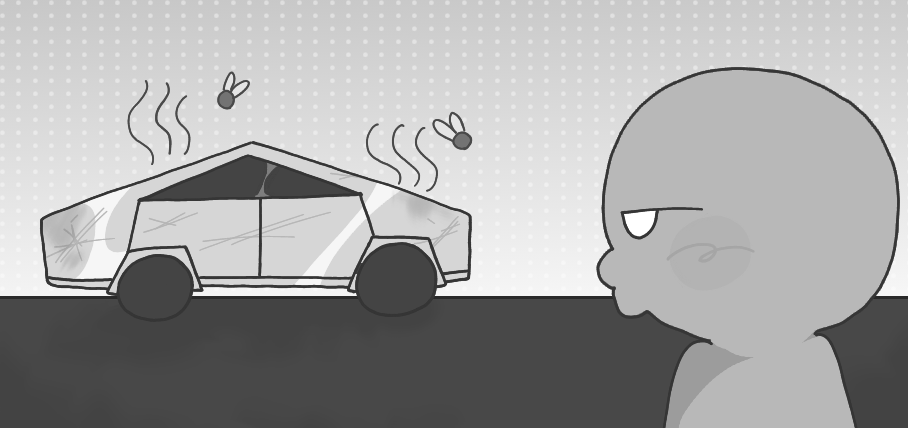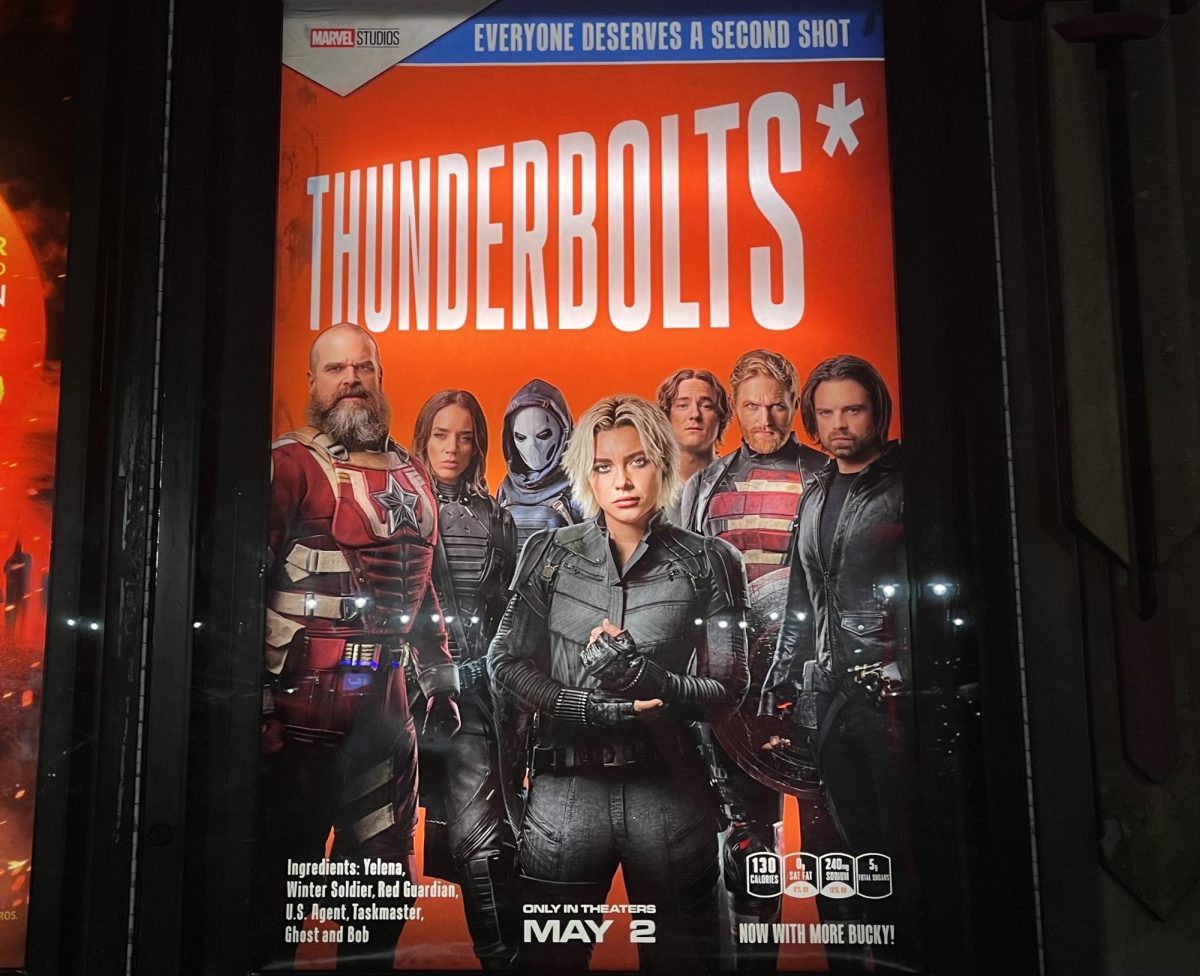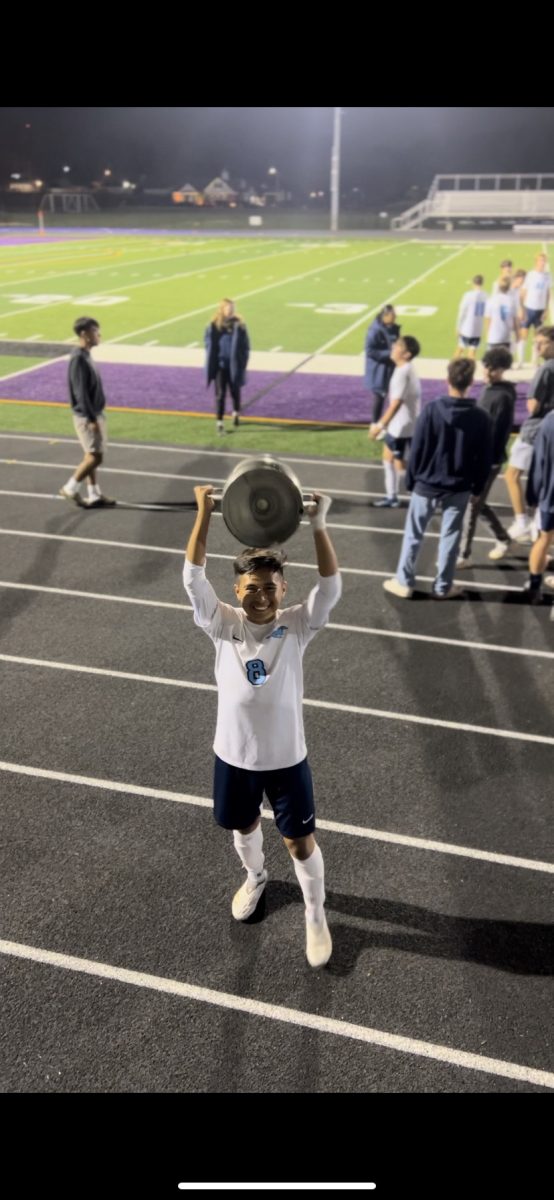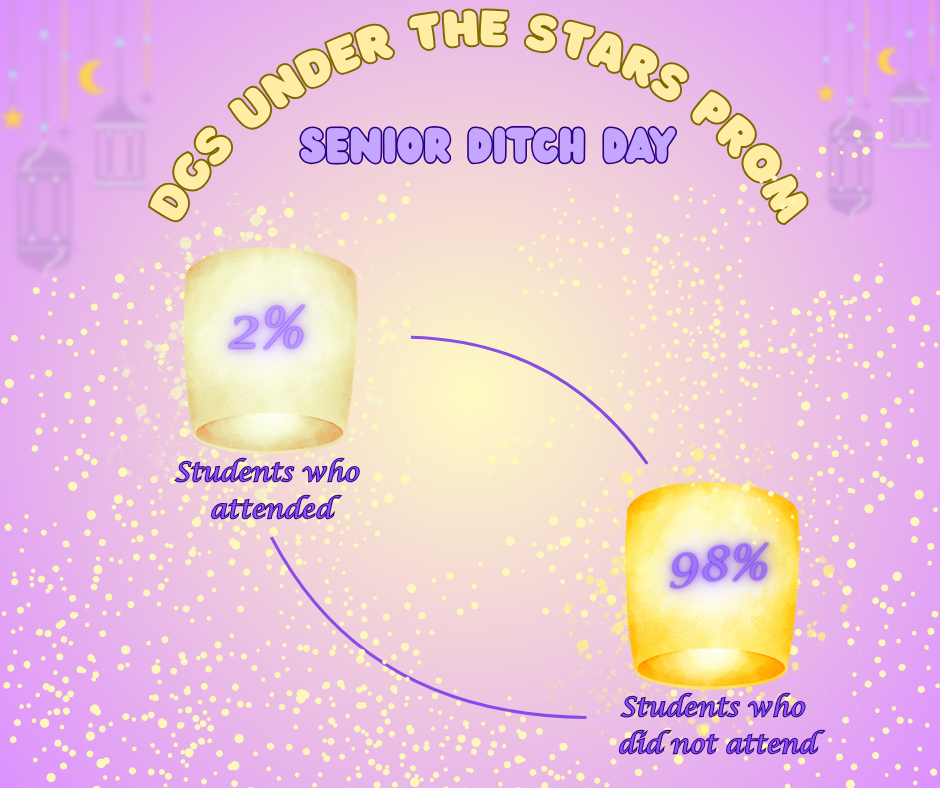Mustangs stampede to the polls
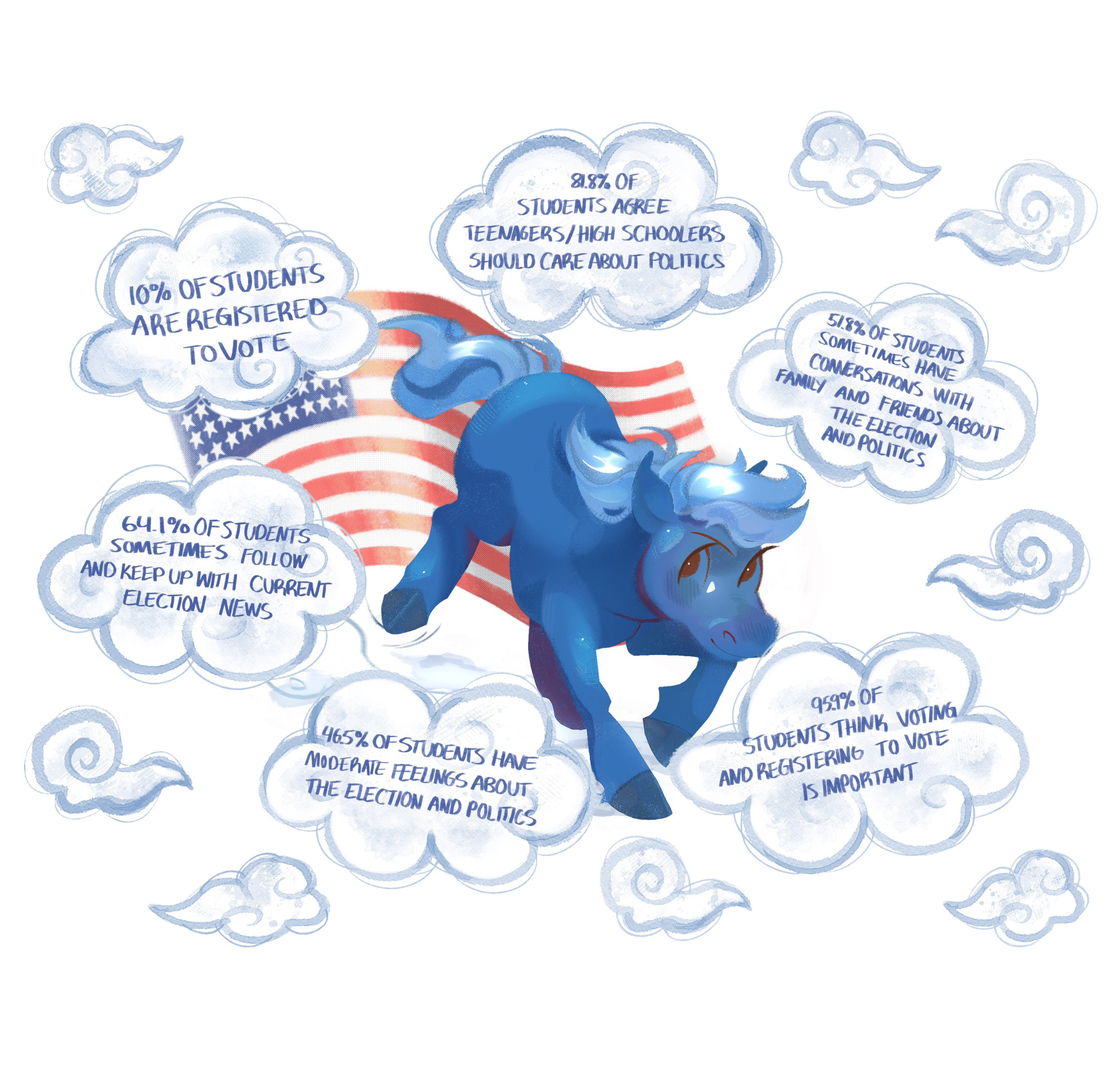
On Sept. 15, an email was sent out to DGS students asking about their opinions on politics and the 2024 election. It was an optional survey sent out by the Director of Student Activities Jennifer Martinez and approximately 168 students took the questionnaire.
According to this survey, 90.4 percent of students are currently not registered to vote. Nonetheless, it is important to acknowledge that the majority of the student body isn’t eligible to vote as students are required to be 18 years of age. Although only a small percentage of students are registered to vote, 95.8 percent of students think that registering for voting is important.
When asked if they have strong opinions about the election, if they have conversations about it and if they keep up with political news, many students picked the “moderate option”. This demonstrates student involvement in the election, but it doesn’t necessarily compel them to participate heavily in politics.
Even so, only a few students said that they don’t involve themselves in politics at all. The highest percentage of non-involved students was 10.8 percent.
When asked about whether or not teenagers should care about politics, 88.6 percent of students said yes. “I think politics are important and learning about the current world of politics at a time like right now in your life can be very important and can help with future elections,” said one student.
However, students who said no tended to fill in the “other” option with an explanation. “No…as at this point in many people’s lives, politics only serves to polarize among imagined boundaries. I’ve quite a few friends [with slightly different opinions] on the topic,” said another student.
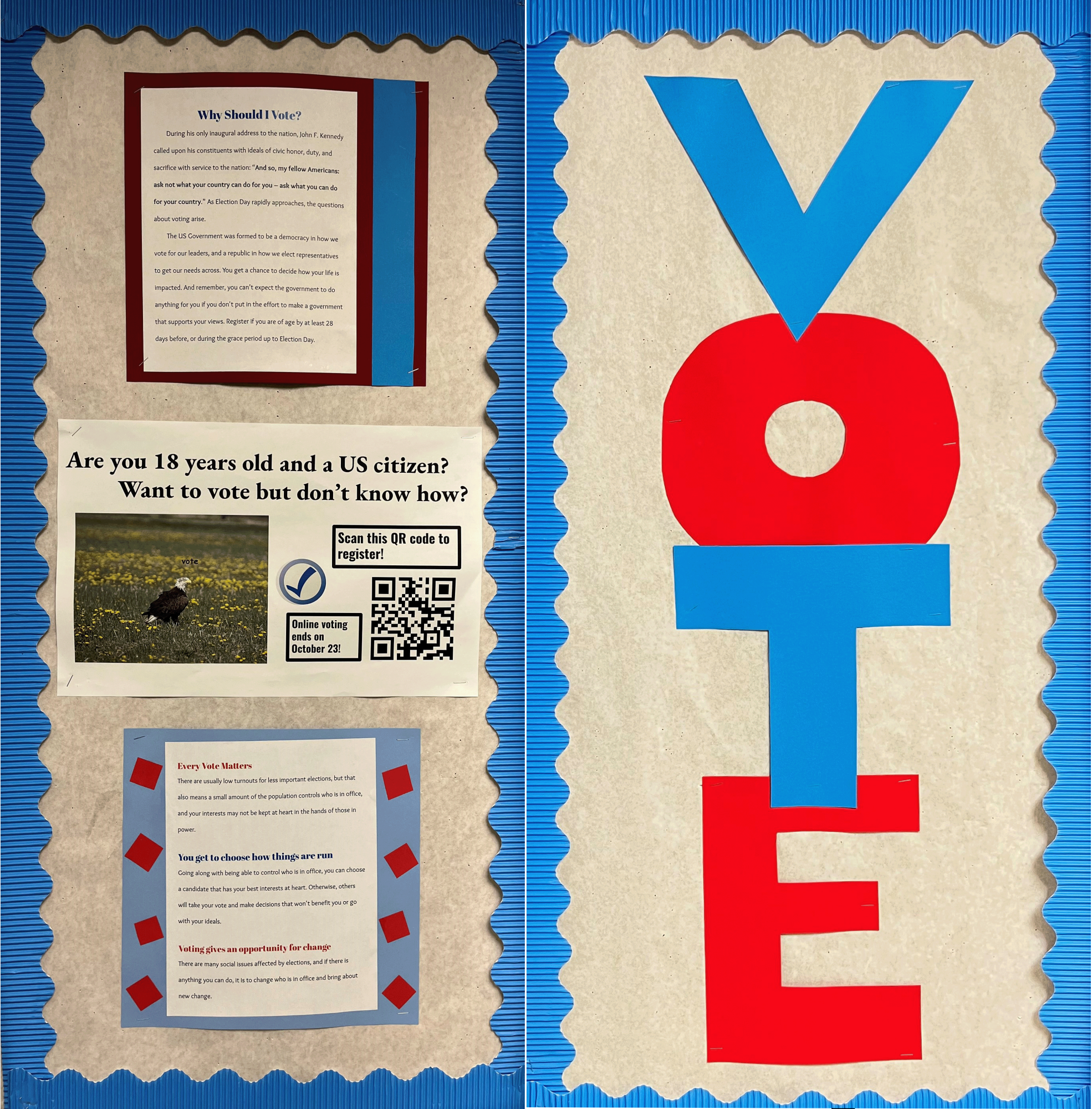
An eighteenth birthday is a door to all sorts of new possibilities: Costco cards, tattoos, lottery tickets and no more driving curfews. But becoming an adult gives one access to a fundamental American freedom–the right to vote. Significant elections are set to take place and more students are eligible to vote, making this key democratic process more meaningful than ever.
Social studies teacher Laura Rodey wants to help students register to vote so they are able to participate in government.
“There’s different ways students can register to vote. There is a website in Illinois where they can register. The second thing we do is we have the League of Women Voters come in and help students register to vote,” Rodey said.
The social studies department also plays a role in relaying information about voter registration to the student body.
“Our law classes deliver, when students turn eighteen or are just about to turn eighteen, a birthday envelope to them in their class that says, ‘happy birthday, here is why we think it’s important to vote and here’s how you can register to vote,’” Rodey said.
Senior Mikaela Cresse turned eighteen in July and is excited for the upcoming election season, specifically voting in the 2024 presidential election
“I’m going to vote in the presidential election because I am excited to vote for the first time, and I think that’s a big step into adulthood,” Cresse said.
However, there are still many students hesitant to vote or even register for the process.
“What I hear from students is: I don’t like any of the candidates, I don’t even know the issues or they don’t listen to us anyway so I don’t know what the point is of voting,” Rodey said.
Despite these barriers, Cresse believes that all students should make the effort to participate in our country’s democracy if they are able.
“Even though you have very little say in what happens in the government, it’s still some sort of say, and I think the government takes good responsibility from you if you vote and share your opinion and try to get involved in the country that you live in,” Cresse said.
Rodey wants students to utilize DGS voting resources so they can influence policy and politics.
“I think it’s important for everyone to register to vote. It is the one way every citizen of this country can make their voice heard and have a say in our political system,” Rodey said.
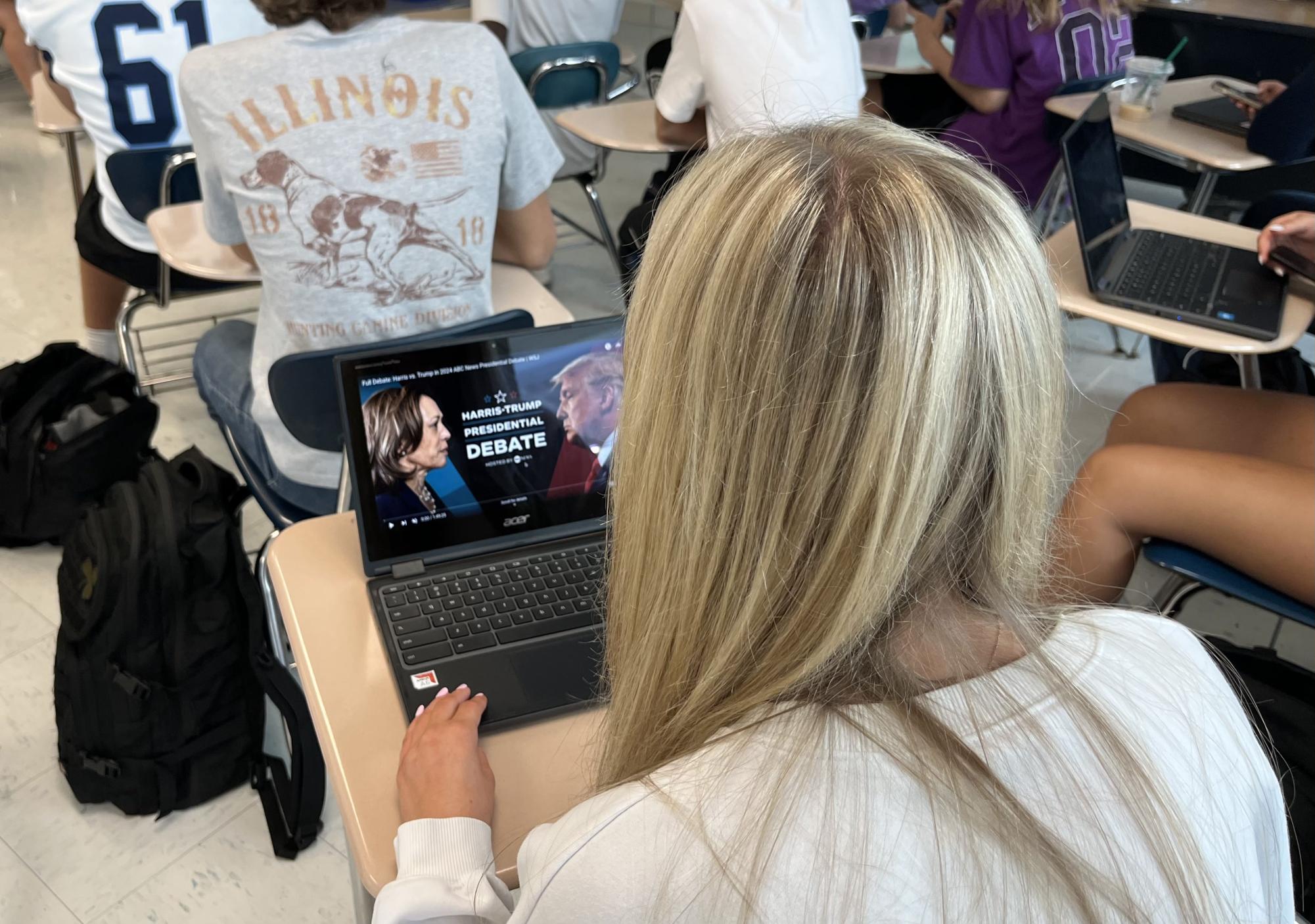
With the presidential election coming up this November, the conversations around politics start to arise. But for students, these conversations may be non-existent. Tensions seem to rise as well.
Senior Jenny Lopez speaks on how involved she is regarding the election and politics as a whole.
“I’ve only watched the presidential debate, but that’s pretty much it,” Lopez said.
Lopez is able to vote in this year’s election, which has influenced her opinion regarding politics this year.
“The more I thought about the election and how I’m able to vote makes me think about how my choices will affect me when I’m older…it made me realize that I should care about politics because they influence my future,” Lopez said.
Lopez does not touch on politics with friends due to them not being able to vote in this election.
“I don’t really have conversations with my friends…not many kids my age care because they aren’t able to vote, so there’s not much of a conversation to be had,” Lopez said.
Social Studies teacher James Chochole shares that it is difficult to have conversations about politics as an adult. Although, children and adults have different types of conversations based on what they may value politically.
“I think only a percentage of students have been staying updated on the election…it’s still difficult to have those conversations as an adult, but the topics shift based on what you value as a kid versus an adult,” Chochole said.
Sophomore Chloe Venzon explains why people her age may not take interest in politics.
“We can’t really make an impact yet since we can’t vote so I don’t really keep up [with politics], but I do think it’s interesting how citizens are able to determine who the president is,” Venzon said.
Venzon also touches on how politics are a topic that is taboo for most people her age.
“I think how strongly people have opinions creates controversy,” Venzon said.
Eligible U.S. citizens can register to vote in this year’s presidential election at ova.elections.il.gov.
DGS students have the opportunity to be a student election judge in their community. Students have to fill out a form that’s from DuPage County with basic information such as name and address. Stu-dents be at least 16, a U.S. citizen, be able to communicate in English, be in good academic standing and have a GPA of 3.0. Students can bring their completed form to their social studies teacher or the social studies office to have a teacher sign off that they meet the requirements. From there if students are accepted, they will complete an online course to learn about in the ins and outs of being a judge.
Social Studies teacher Tracy Culcasi urges students to apply to be an election judge. “I think it’s a great opportunity for students to learn about how elections work firsthand and get them involved. I think students who are election judges are more likely to go on to be voters when they turn 18,” Culcasi said.
The sticking point for some students is the tiny circles on the top right of the application asking for your political party. But some election judges aren’t 18, so how are they supposed to pick a party before they can even fill out a ballot?
“I know some students still don’t really know or understand fully which party they support or like a lot of voters, they support things from both parties…I think for the purpose of election judging it’s [filling out Democrat or Republican] just to make sure there’s kind of a balance of who the judges are,” Culcasi said.
Senior Rylee Monroe was a student election judge for the primary election and has applied to be an election judge for the general election in November. While Monroe is unable to vote in the upcoming presidential election, that doesn’t deter her from wanting to participate.
“It’s a great experience to be involved in the community and learn more about the behind the scene of politics and what really goes on,” Monroe said.
The jobs of an election judge allow students to get hands-on experience in politics. Students assist in the facilitation of voter registration within the county, distribute ballots to voters and answer any questions they have about the voting process and contribute to the process of putting together and breaking down the various polling stations at assigned polling places.
Students are able to get real world experience a classroom cannot provide.
Being an election judge can provide the opportunity to interact with people from your community you might never see.
“I always love to stay involved within the community, and this is kind of an opportunity to do that and learn a lot while being involved,” Monroe said.
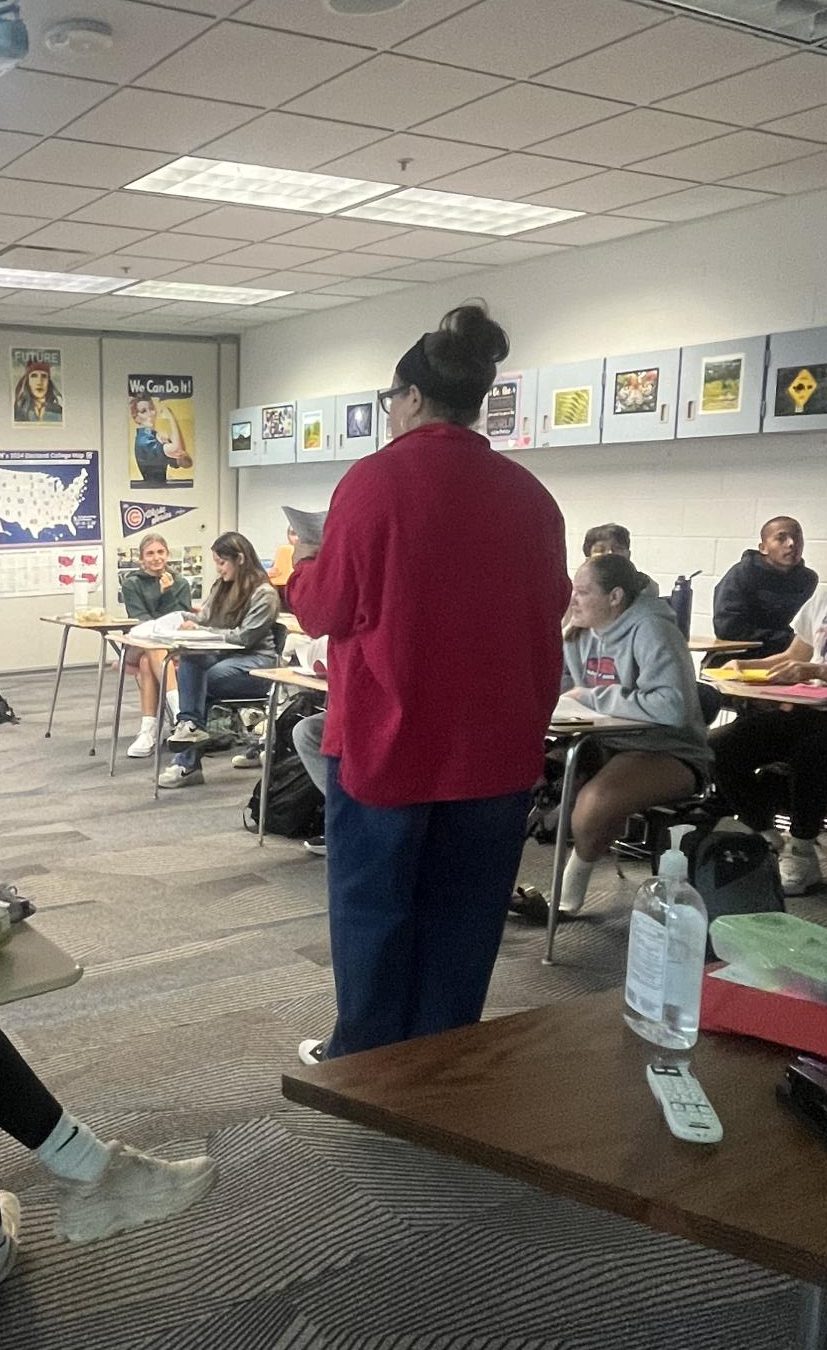
As the 2024 election nears, students strive to stay well-informed on the political climate. Information from dozens of news sites leads students to differing conclusions on what is really going on. Heated dinner table conversations become more and more common.
Junior Jillian Myers shared her perspective on conversations surrounding politics.
“I think [politics] are important because in a short time they can have an impact on the world, and the sad reality is our rights are on the line. It is important to gather all the information you can in order to form your own political opinions and not just the ones that you may have grown up with,” Myers said.
Myers emphasized that creating your own political beliefs is crucial to having a solid political standing.
Politics’ controversial nature can prove keeping cool during a conversation difficult. DGS social studies teacher Gregory Maloney described the importance of keeping emotion out of political conversations.
“I think trying to keep emotion out of it is difficult because many of these topics incite emotions. But by focusing as much as possible on just facts and accessible data can result in an informed, mature conversation that doesn’t end in name-calling,” Maloney said.
While students are involved in political conversations from all ages, reaching a point of understanding in politics can be an difficult due to the numerous sites of political information. Both Myers and Maloney shared their best methods of information while maintaining an unbiased standpoint.
“I am definitely aware of my own bias and I do take a step back to check that. I watch Fox News and signed up for a Truth Social account to understand how people can be manipulated into believing that people in Ohio are eating cats and dogs. I really believe it is a skill to be able to admit you are wrong and I am constantly trying to work on that; however, I also try to stay up to date on things going on in politics,” Myers said.
Maloney also provided comments on popular news publications like CNN or Fox News. “I think they have to take[n] with a grain of salt. [with most sites] there’s going to be spin involved. I would say, look at those sources in addition to NPR, Reuters or AP [News]” Maloney said.











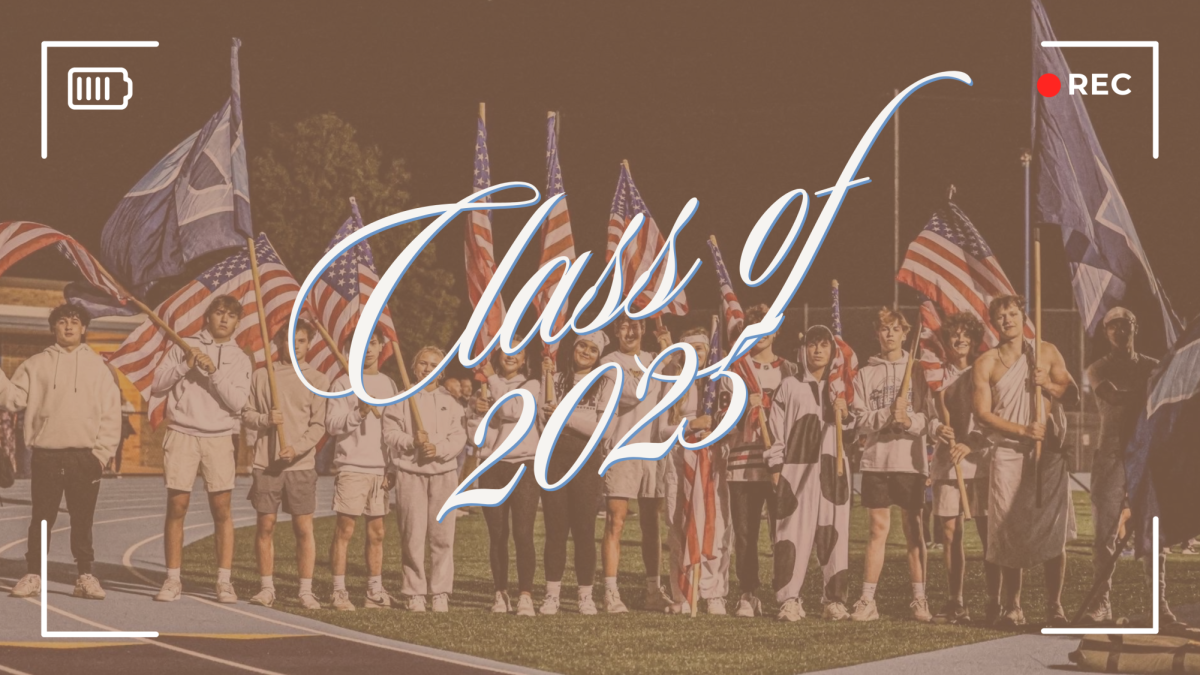
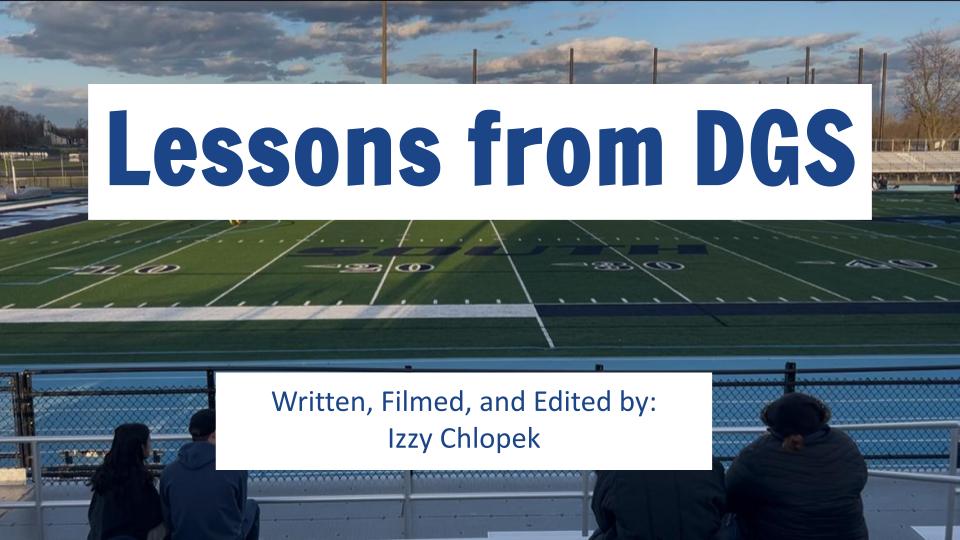
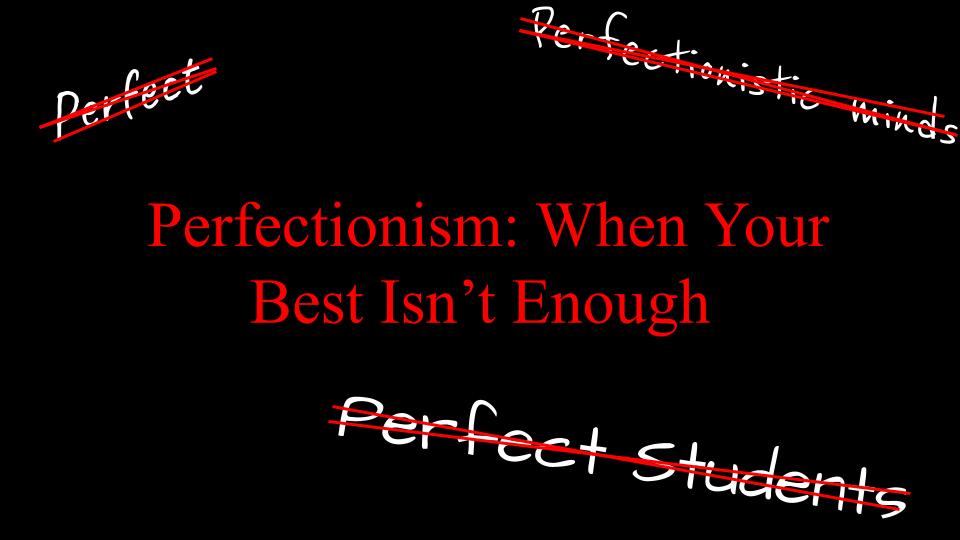
![In this documentary, you will learn how violins are made. All music is in the public domain:
Music Produced by Deutsche Grammophon, Medici TV, Heifetz Institute, and Queen Elisabeth competition
Paganini, Caprice No. 24 [Song recorded by Jasha Heifetz]. Heifetz Institute. (Original work published 1817)
Paganini, Caprice No. 24 [Song recorded by Jasha Heifetz]. Heifetz Institute. (Original work published 1817)
Bartok, Sonata No.1 for Solo Violin [Song recorded by Kevin Zhu]. Queen Elizabeth Competition. (Original work published 1944)
Paganini, Violin Concerto no. 1 [Song recorded by Philippe Hirshhorn]. Queen Elizabeth Competition. (Original work published 1819-1825)](https://southblueprint.com/wp-content/uploads/2025/05/Screenshot-2025-05-07-122429-1200x668.png)
